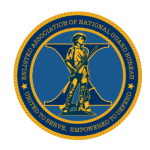EANGB
Legislative Committee
EANGB is focused on developing and advancing legislative initiatives that have received membership approval for consideration, along with monitoring and maintaining current status reports on legislative priorities of EANGUS and affiliated professional military organizations. EANGB will establish and implement strategic plans to mobilize grassroots advocacy in support of legislative matters affecting current membership interests.
EANGB’s legislative priorities are derived from the resolutions submitted by membership and are submitted to EANGUS to be voted on at the annual conference. Every member has a voice!
The Resolutions Process
1. Submission: Members submit resolution proposals to EANGB for review and action. EANGB will contact other Associations to collaborate on local and state-level issues. *Federal-level issues will be submitted by EANGB to EANGUS during annual resolutions submission window (Feb 15 to May 30).
2. Review: Proposals are vetted by EANGB Legislative Committee and Executive Council. Local and State-Level issues will be routed to appropriate Subject Matter Experts (or State Associations) for additional assistance. *Federal-level issues will also be vetted by EANGUS areas, experts, and the EANGUS Committee on Resolutions.
3. Adoption: Resolution proposals recommended by the committee and approved by the Executive Council will be adopted as legislative priorities of EANGB. *Federal-level proposals recommended by the EANGUS Resolutions Committee are presented at the EANGUS General Conference for adoption.
4. Advocacy: Adopted resolutions drive EANGB and EANGUS legislative efforts.
WANT TO SUPPORT?
Join Our Legislative Team Today!
NATIONAL GUARD HISTORICAL LEGISLATIVE ACCOMPLISHMENTS
Increased Federal Employee Military Leave
The Issue
Federal employees serving in the National Guard of Reserve Components lacked similar benefits as their active-duty components.
Accomplishment
Section 1109 of the Fiscal Year (FY) 2025 National Defense Authorization Act (NDAA) authorized increased military leave accrual and accumulation for federal employees from 15 to 20 days.
Early Retirement Credit Under 12304b Orders
The Issue
National Guard servicemembers have deployed under U.S.C Title 10, Section 12304b orders since 2012 for pre-planned missions in support of Combatant Commands, but are not authorized to receive the same benefits provided under other overseas mobilization authorities.
Accomplishment
Section 604 of the Fiscal Year (FY) 2020 National Defense Authorization Act (NDAA) authorizes early retirement credit for National Guard and Reserve servicemembers serving under Title 10, Section 12304b orders.
Tricare Reserve Select Access Starting in 2030
The Issue
National Guard servicemembers can face unique challenges in obtaining health care access or ensuring continuity of care. Significant numbers of servicemembers without health care can directly impact deployability of National Guard forces.
Accomplishment
Section 701 of the Fiscal Year (FY) 2020 National Defense Authorization Act (NDAA) authorizes, beginning in 2030, access to TRS for federal employees who serve in the National Guard, including National Guard dual-status technicians.
Reserve Incentive & Special-Duty Pay Parity
The Issue
Guardsmen performing duties requiring special skills or involving hazardous conditions have historically faced disparities in incentive pay compared to their active-duty counterparts. This inequity has created morale and retention challenges among Guard personnel who perform similar high-risk or specialized work as full-time active-duty servicemembers but do not receive equal compensation.
Accomplishment
Section 602 of the Fiscal Year (FY) 2022 National Defense Authorization Act (NDAA) mandates that National Guard members receive incentive pay at the same rate as active-component servicemembers.
Reserve Component Maternity Leave Program
The Issue
Drill-status women in the National Guard historically lacked access to paid maternity leave, forcing many to choose between attending mandatory training while recovering from childbirth or losing pay and retirement points. This gap created financial and professional hardships and discouraged retention among female servicemembers.
Accomplishment
The Reserve Component Maternity Leave Program, implemented by the Department of Defense in 2022, provides up to three months of excused absences with pay and retirement points for drill-status women attending unit training assemblies, securing paid maternity leave for eligible National Guard members.
